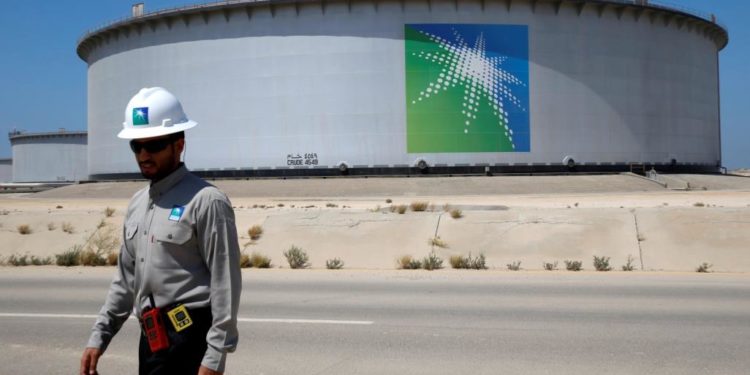
Aramco’s board of directors has concluded that listing the company on the New York Stock Exchange would carry a lot of legal risk to make it a realistic option, although it said the final decision was in the hands of Mohammed bin Salman.
The agency said New York was the stock market favored by Mohammed bin Salman before the IPO was suspended last year, even after Aramco’s lawyers and some government advisers raised legal concerns, Reuters reported on Friday.
New York offers the world’s largest investor base and is vital to the IPO, which aims to attract up to $ 100 billion, an amount that may be difficult for other exchanges to raise. US President Donald Trump has urged the kingdom to list Aramco in New York.
A source familiar with the IPO said the board – made up of government ministers and executives of Aramco – concluded at a meeting this month that it would not consider listing the company in the United States, “unless Aramco is granted sovereign immunity that protects it from any legal process.”
“This is of course difficult, if not impossible,” the source told Reuters.
Bin Salman was making Aramco $ 2 trillion, while some insiders and bankers say the figure is too high.
Sources also said the move to exclude New York and Aramco’s devaluation suggests that company and government experts are pushing for a more realistic plan for the IPO.
Alongside New York, the London, Hong Kong and Tokyo exchanges are keen to convince Saudi officials to secure a deal to trade shares in Aramco, which is expected to have a major listing in Riyadh.
But Saudi officials say the New York disclosure procedures and complex regulations may legally interfere with the sovereignty of the Saudi government, which will remain Aramco’s main shareholder and is likely to retain a 95 percent stake.
“Listing in New York is no longer an option,” said a source familiar to the IPO.
Sources said Riyadh and London were now the two main options, with a domestic listing first followed by an international offering at a later stage.
Another source familiar with the IPO said that “the probability of local listing is increasing, with 1% to 2% of Aramco being listed locally,” adding that “the other possibility is listing in London.”
Three other sources said the potential litigation risks in the United States include the Justice Against Terrorism Act (Justa) and proposed US legislation known as Nubik, which could lead to Aramco being sued in US courts.
Another source who discussed the IPO with Saudi officials said: “The whole system is very much inclined to resort to the judiciary, but of course Aramco has a lot of investment in the United States that will continue.”
Aramco may also find itself involved in ongoing lawsuits against US oil companies for their role in climate change, the sources said.
In response to a question from Reuters whether New York was excluded as a listing site, Aramco said in a statement that it “continues to engage the shareholder on IPO preparation activities.”
“The company is ready and the timing will depend on market conditions and be at a time chosen by the shareholder.”
According to sources familiar with the thinking of the Saudi regime, Bin Salman would have preferred to be listed on the New York Stock Exchange, partly because of Riyadh’s long-standing ties with Washington.
The sale of a 5% stake in Aramco is central to Vision 2030, a plan to diversify the Saudi economy away from oil, but the initial public offering, which was initially expected to take place in 2017, has faced repeated delays.
Currently, the IPO is not expected until Aramco completes a majority stake in petrochemical giant Saudi Basic Industries Corp, which will delay it until 2020 or 2021.